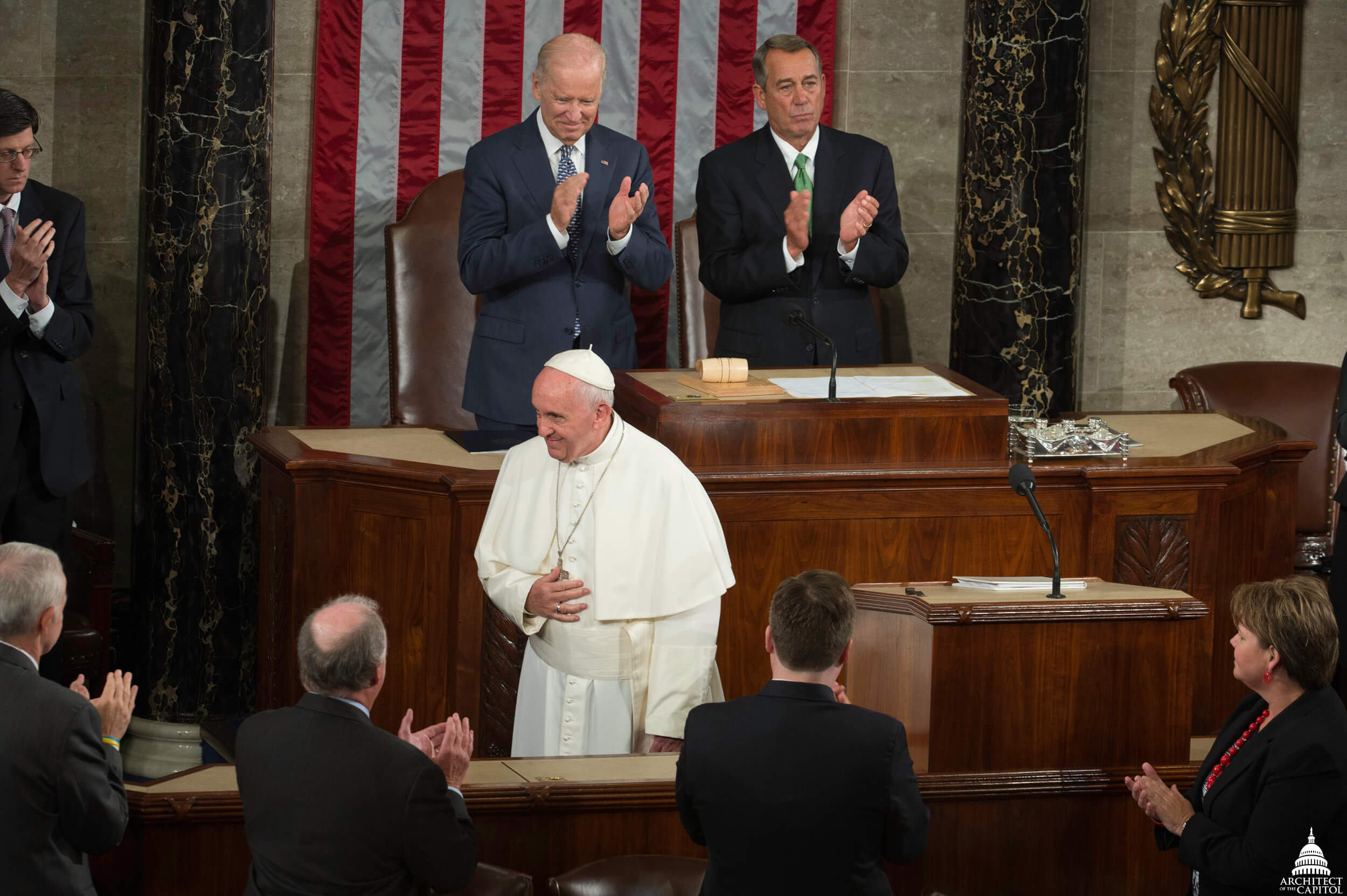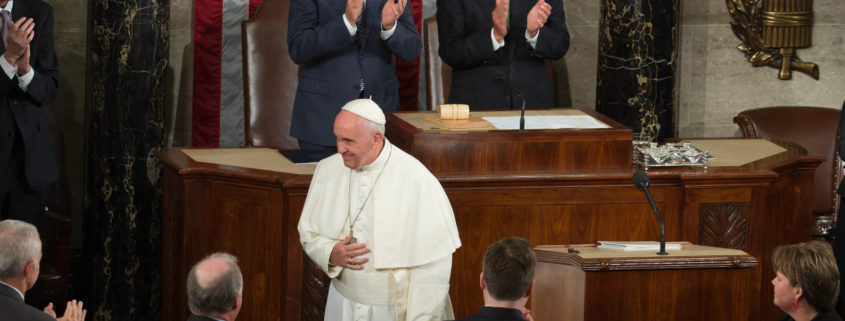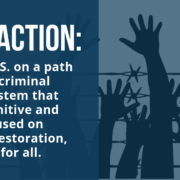Jesuit Law School Alumni Call on Congress to Pass Criminal Justice Reform Grounded in Human Dignity
BY ISN STAFF | September 21, 2016
WASHINGTON, D.C. – Building on the one-year anniversary of Pope Francis’s historic address to Congress last September, over 120 alumni of Jesuit law schools delivered a letter to Congressional leadership and the offices of Jesuit-educated members of Congress calling for passage of bipartisan criminal justice reform legislation (House version / Senate version).
“[I] offer encouragement to all those who are convinced that a just and necessary punishment must never exclude the dimension of hope and the goal of rehabilitation.”
-Pope Francis

[Wikipedia – Creative Commons]
A number of prominent individuals in the criminal justice field signed the letter, including: Janine Geske, Retired Wisconsin Supreme Court Justice (Marquette Law ‘75); Michael McKenna, State of Connecticut Assistant Attorney General (Saint Louis University Law ‘80); Calvin Johnson, Retired Judge, Louisiana’s Orleans Parish Criminal District Court (Loyola New Orleans Law ‘78); Beth Davis-Kerry, Public Defender, State of Missouri (St. Louis University Law ‘87); Thomas Severin, Assistant Public Defender, State of Nebraska (Creighton University Law ‘91); Michael Karam, Retired Federal Prosecutor (Georgetown University Law Center ‘76); and Michael Byrne, Retired Judge, Los Angeles Superior Court (Loyola Marymount Law, ‘68).
The signatories noted that many elements of the current U.S. system provide inadequate justice and in some cases perpetuate injustice. These deficiencies include disproportionate sentences as a result of mandatory minimums, the lack of care for victims once a trial ends, countless individuals returning from jail and prison inadequately prepared to re-enter society, and our country’s reliance on the justice system to solve drug addiction, poverty, mental illness and joblessness. The U.S. currently represents 5% of the global population, yet 25% of the total global prison population. More than half of the individuals in federal prison are serving sentences for nonviolent drug crimes. Because of our broken criminal justice system, one in three black men in the United States can expect to be incarcerated at some point in their lives.
This is not the first time that Jesuit university alumni have called on Congress to take action. In 2014, over 1,200 alumni of Jesuit universities and high schools sent a letter to fellow alumni in the U.S. House of Representatives calling for passage of comprehensive immigration reform legislation that had passed the Senate earlier in the year.
Jesuit leaders have also made similar requests for action on humanitarian issues. In a 2014 letter to graduates of U.S. Jesuit high schools and colleges, Fr. Thomas Smolich, S.J., then president of the Jesuit Conference of Canada and the United States, urged graduates of U.S. Jesuit high schools and colleges to “uphold the dignity of the human person and the sacredness of human life” as they considered policy solutions to address the influx of children fleeing violence in Central America that summer.
In 2015, Fr. Timothy Kesicki, S.J., current president of the Jesuit Conference, sent a letter to Jesuit-educated members in anticipation of the Pope’s visit to the U.S. and address to Congress. The letter anticipated potential areas of focus during Pope Francis’s visit, including environmental justice and climate change, protecting the human rights of migrants, addressing the root causes of migrants fleeing Central America, and reconciliation and rehabilitation in justice systems.











Thank you for advancing the Ignatian Solidarity Network to further the cause of justice fr all.
Thank you for advancing the Ignatian Solidarity Network to further the cause of justice fr all.